Want to know how you can hold a powerful one-on-one coaching session?
After all, coaching is a skill you can learn — EVEN if you don’t have any experience or a coaching certification. And by being a great coach, you get incredibly loyal clients and can grow your business to six figures and up.
Today, you learn how to hold coaching sessions, including:
- What to say in a coaching session
- How to end coaching sessions
- How to structure your coaching session
- And so much more!
Want to learn more? Read on!
Steps:
1. What is a coaching session?
3. How do you structure a coaching session?
4. What are good coaching questions?
5. How do you plan a coaching session?
6. Advanced coaching session techniques
7. The best coaching session tools
What is a coaching session?
A coaching session is a meeting that’s part of your overall coaching package.
The focus of a coaching session (and your coaching program) is to help your clients get results.
But coaches aren’t teachers. And contrary to what many believe, a coach is *not* someone who speaks with their clients on a call once in a blue moon, asks a few questions about how they’re feeling, and that’s it.
Get the Ultimate Guide
for building a
6-Figure Coaching Business so you can achieve more freedom!
Instead, in this post you’ll learn what it really takes to be a great coach.
After all, there’s a lot of potential in coaching because the industry is growing… fast. (The e-learning industry, which coaching is a part of, is expected to grow to $325 billion by 2025.)
And when clients work one-on-one with you, they get tailored support. You keep them accountable and there’s a much higher chance that they will reach their goal.
In fact, research shows that people who share their goals with people they think are more successful are more likely to reach them.
But what makes an effective coaching session?
You’ll plan your coaching session. This includes setting goals for your clients.
Then, you have the actual “meat” of the coaching session.
And finally, you’ll help your clients take the next steps.
Next:
What the most effective coaching sessions look like.
Effective coaching session template
Here are the different steps of a coaching session that helps people get results:
Recap and transition into the call (10-15 minutes)
Ongoing clients: Review the previous week.
New clients: Talk through what your coaching session will look like.
Set a goal (5-10 minutes)
Next, establish your goal for your session.
Reframe challenges and keep clients accountable (20-30 minutes)
Problem solve together with your client to help them work through their challenges.
Keep clients accountable if resistance comes up for them.
Provide a vision (10-15 minutes)
Hold your clients’ vision for them – even if they don’t believe in it themselves.
Recap your plan (5-10 minutes)
Recap action steps and set clear deadlines.
Next, let’s look at how to use this template in an actual call.
How do you structure a coaching session?
Before you jump into structuring your call, decide on what type of coaching you want to provide.
I’m a big proponent of “coach-sulting.”
As a coach-sultant, you give your coachees actionable steps and together, you work to achieve a goal.
Look:
This is very different from how a lot of people think about coaching.
You see, there’s this school of thought that coaching is asking a series of questions like “Why do you feel that?” The idea is that people really know the answer themselves.
Now, I’m in no way downplaying this approach.
But the way I see it, your clients don’t hire you to ask them questions. They hire you for your experience and to get your guidance.
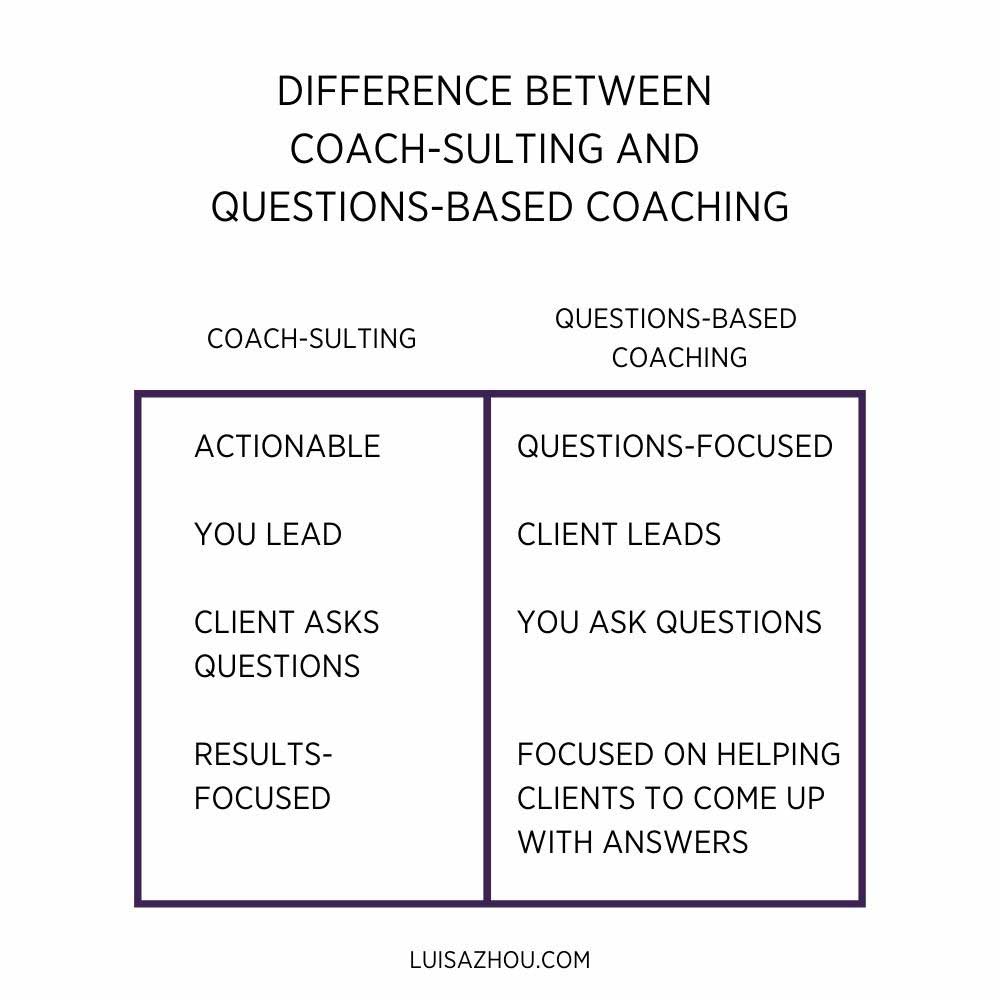
Coach-sulting is essentially a mix of coaching (helping people achieve a goal) and consulting (giving people a strategy to achieve a goal).
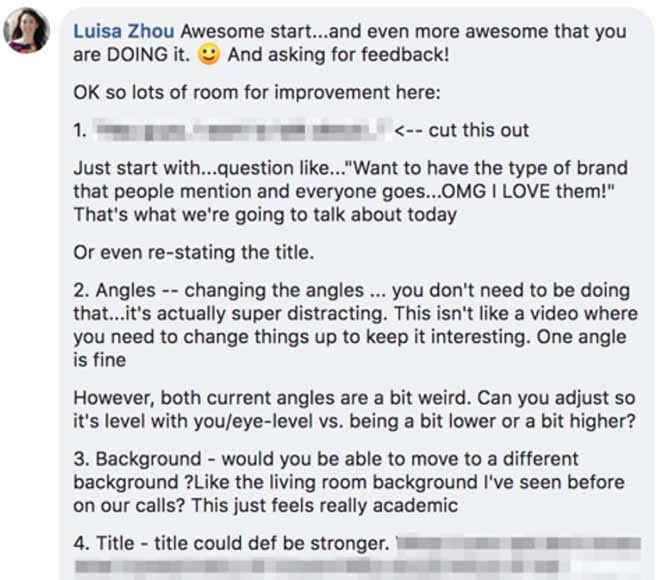
Understanding this is key to holding great coaching calls.
But how long should your coaching sessions be?
Your coaching calls can be anywhere from 30 minutes to an hour.
I recommend having one to four one-on-one coaching calls per client each month, depending on your offer.
Now, let’s structure your call.
If you want to watch a video instead, take a look at this quick video where I recap my structure:
Recap and transition into the call (ongoing coaching)
The first part of the call is to transition into the call.
In my coaching, I’d ask clients to answer these questions at least 24 hours before a call:
“What did you do this week?”
And:
“What went well this week?”
That way, I have time to review them.
These questions help you and your client focus on the steps they take and the process they’ve made instead of just focusing on their challenges.
And that will help you ease into the call.
You can also ask a question like:
“Where can I give some extra support?”
This question helps you understand where your client is struggling.
Sometimes, you’ll need to dig deeper and ask follow-up questions like:
“Tell me more about (the thing they brought up).”
Set a goal
Don’t get on a call just to ask your clients how they’re feeling — unless that’s the support they need.
Instead, move them towards their goal.
That’s best done by using sub-goals for each month and session. Map out what you’ll talk about during this coaching session to help your client get closer to their goal.
Then, share that goal with your client.
Problem solve and reframe challenges
If your client is facing challenges (which, most likely, they are – after all, that’s why they need a coach), your job is to help them through that problem.
Now, I always tell coaches:
“You can’t be responsible for your clients’ results.”
But there’s a fine line between that and throwing up your hands and saying:
“I completely wash my hands and don’t have anything to do with your results.”
For example, I’ve hired several health coaches.
If I wouldn’t have shared any of my struggles with my coaches, I probably wouldn’t have gotten very good results.
The thing is: Coaches aren’t mind-readers. As the client, it’s on me to talk about what’s going on in my life.
If a client does that, it’s on the coach to problem-solve.
For example, if I tell a student to pitch a number of businesses and that person does the work, I don’t just go, “Well, it should work.” Instead, I put my problem-solving hat on to see what my client can improve to get results.
And if the client doesn’t do the work, that’s where you as a coach can help them dig deeper and overcome their internal resistance.
Your client has struggled with achieving their goal their entire life. Likely, this isn’t going to change overnight. You help them overcome their fears and obstacles.
As a coach, you can help them get through this.
Ask, “Can you share what’s going on and what you’re feeling?”
Keep clients accountable
Listen:
As a coach, you need to be prepared to have those tough conversations that aren’t the easiest to have. Your clients haven’t achieved their goal yet — they have things that keep them back, like old beliefs, thoughts, and their mindset.
For example:
When my clients say, “Why isn’t this easier for me?”, I hold them accountable. I say, “You want this goal and this isn’t how you’re going to get it.”
Provide a vision
You’re the person your clients hire to tell them, “Here’s what’s possible even if you don’t think it’s possible. I know it’s possible because of my experience.”
As the coach, you think bigger than your clients and help them see what they don’t know.
For example:
I grew my business to over $1 million in the first year — a direct result of a coach showing me what was possible. Long story short: I was initially planning for a $300,000 course launch (which already felt like a HUGE goal to me). My previous launches had brought in $8,000 and $100,000 so it seemed like a good stretch goal.
But my coach challenged me and said, “Why don’t you aim for $1 million?” I did and my launch ended up bringing in $800,000 in sales — way beyond the $300,000 launch I had envisioned.
Recap your action plan
At the end of the session, it’s time to recap everything you’ve talked about.
You can ask:
“What’s your biggest takeaway from today’s call?”
And:
“What’s coming up for you?”
Then, go through the action steps you’ve discussed and set dates on everything.
After the call
What should you do after conducting a coaching session?
Coaching doesn’t just happen on the call.
I record all my coaching calls and send the recording to my clients so that they can refer back to them.
And then there’s the coaching you do in between coaching calls, like answering questions and checking in on your clients.
As I mentioned before, I’d ask my clients to send me a summary of their work 24 hours before each call.
They’d answer the following questions:
- #1: What did you do this week?
- #2: What went well?
- #3. What do you want to focus on during this call?
Okay, so now you know how to hold a great coaching call.
But what questions should you ask during your call?
That’s what we’ll look at next.
Get the Ultimate Guide
for building a
6-Figure Coaching Business so you can achieve more freedom!
What are good coaching questions? (10 questions)
My top 10 coaching questions are:
“Where can I give you some extra support?”
This is a “help me help you question.” You help your clients overcome their fears and limiting beliefs – and together with them, you identify their obstacles.
“When we started working together, you mentioned you had fears around (insert fears). How are you feeling about this right now?”
Fears keep people back. And by addressing them, you help your clients work through their fears.
“What did you do this week?”
Ask clients to answer this question at least 24 hours before the call. That way, you can analyze their answer before the call and address their progress.
“What went well this week?”
This is another question you’ll want to ask before your call. Clients cultivate a more positive mindset by reminding themselves of the things that are going well for them.
“What do you want to focus on during this call?”
Let clients answer this question before the call so that they aren’t put on the spot. Instead, they can think through the best way to use the session.
“What questions are coming up for you?”
This question helps you dig deeper during your call.
“What else can I support you with?”
Use this question to move your call forward when talking through challenges your client is facing.
“How do you feel about that?”
Emotions can hold clients back and that’s why it’s important to address them as you talk through things during your call.
“What’s coming up for you?”
Dig deeper with this question so that you understand what’s really going on with your client.
“What’s your biggest takeaway from today’s call?”
This question helps you round up the call and leave it on a tangible note. Don’t forget to talk through the action steps clients need to take!
Next, let’s take a look at what to do before your coaching session.
How do you plan a coaching session?
How do you hold coaching calls that get results?
I used to be where you are now.
When I got my first coaching client, I didn’t have any coaching experience.
I knew the topic I was coaching on (at the time, digital advertising). But I didn’t know how to share what I knew.
I remember being incredibly nervous that I would forget to say something or mess up. That’s why I spent three hours scripting out what I was going to say on the call. (Which was only an hour long!)
You don’t necessarily need to spend the same amount for a call… But I do recommend that you map out and plan your first session.
Here are the stages in a one-on-one coaching process.
What you don’t need
A lot of people will ask me:
“Luisa, what do I need to prepare before my sessions? Do I need gorgeous PDFs?”
The answer is… No.
You can start your coaching sessions right now with what you have.
In fact:
As you hold your coaching sessions, you learn what PDFs to create.
Send out a welcome questionnaire
The first thing to do when you sign on a client?
Before you have your first call, send them a welcome questionnaire. (You can use a Google Doc that your client can fill out and send back to you.)
With this questionnaire, you ask everything that’s relevant to your coaching — what their goals are, what they’re struggling with… I keep mine to about 30 questions.
You can easily set it up in Google Drive and share it as an editable document with your clients.
Plan your coaching sessions
What should you talk about on each call?
Map out all your coaching calls with a client.
Remember:
Every call should be goal-oriented.
This means…
Have a sub-goal every month that builds on your client’s overall goal. And every coaching call moves them to that month’s sub-goal.
You’ll figure out your goals based on the client’s welcome questionnaire and your sales calls. That’s how you know how to tailor your coaching for THAT client.
And your goals and sub-goals depend on your business.
Take my own coaching business. Early on, I mapped out my offer like this:
#1 Month – Mapping out the client’s offer.
#2 Month – Planning their marketing, website, emails, and so forth.
#3 Month – Connecting with their clients.
For example:
The end goal of a health coaching program is to lose weight. On the first call, you get started with mapping out their habits and what they’re currently eating. Maybe you set up a cleanse or similar.
On the next call, you then check in on how that cleanse went.
The third call is all about goal achievement and the fourth call, you might add on workouts.
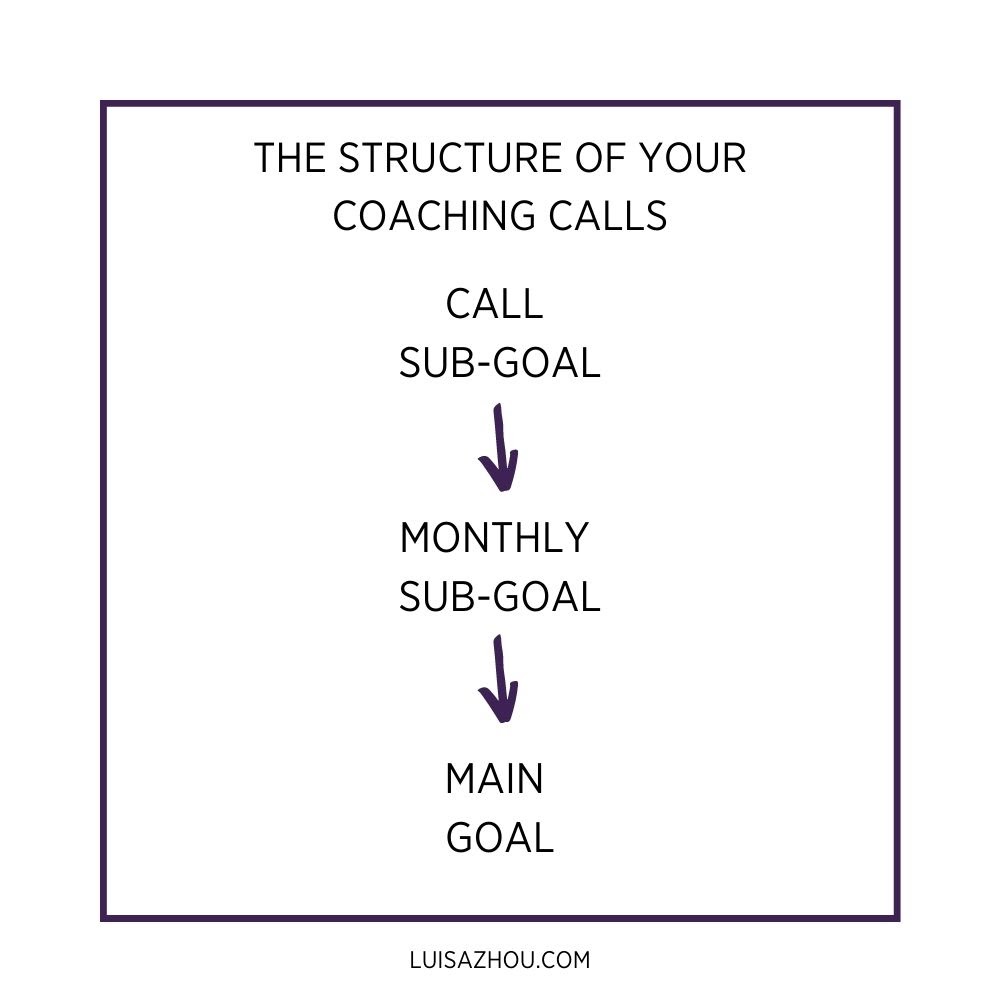
I talk more about what it means to be a great coach in this short video:
Okay, so now you know how to plan your sessions.
While your first calls are just about figuring out how YOU coach in the best way, at some point you’ll be far more comfortable in the role of a coach.
At that point, you can start figuring out how to incorporate more advanced concepts into your coaching.
Here they are:
Advanced coaching session techniques
How do you take your coaching to the next level?
You can…
Use the right coaching model for YOU
There are various different coaching styles and models you can use in your sessions. I personally prefer what I call “coach-sulting,” but you can use models like GROW, OSCAR, or CLEAR.
Help your clients become self-led
What is a good coach?
Simple:
Someone who helps their clients achieve their goals.
But ‘helping’ doesn’t mean the same thing as doing the work for your clients.
After all, that would be a huge disservice to them – after their time with you ends, they should be able to go out there and get the results for themselves.
That’s why I prefer to teach my clients to ask the questions (instead of me always leading and asking questions).
They become self-led and they lead the coaching call.
Next:
The tools you need as a coach.
The best coaching session tools
You don’t need a lot of tools to conduct coaching sessions.
In fact, the only tools you need are a Zoom account to hold your sessions and Google Drive to share material with your clients.
You can also use Calendly to schedule your coaching sessions.
Alternatives to Zoom include Google Meet and Skype.
Get the Ultimate Guide
for building a
6-Figure Coaching Business so you can achieve more freedom!
Frequently asked questions (FAQ)
How do you ensure your client gets results?
If your client doesn’t get results, but does the work, it’s a solvable situation.
Think about what’s going on with the client.
Is there a tactical or mental piece that doesn’t quite line up?
For example, one of my students, a college admissions consultant, saw her sales drop even though she was doing everything the way she was supposed to.
When I dug into her webinar, I understood why.
Before, her content had resonated with her clients. But now, her market was changing, her target clients had become savvier, and so she needed to update her content to keep it fresh.
If the client isn’t doing the work, problem-solve together with them.
But remember: You can’t do the work for your clients.
You can only show up as much for your clients as they show up for themselves. YOU can’t want the results more than them.
How do you answer a question you don’t know the answer to?
This is a super common fear. What do you do if someone asks you a question… And you don’t know what to say?
The thing is…
I used to feel so scared that this would happen to me and that my clients would think I wasn’t as good as they thought I was.
But this isn’t a big deal. Be prepared and honest about your lack of an answer.
You can either relay it to something that can help them (a similar scenario) OR tell them that you’ll get back to them with an answer.
How do you price your coaching sessions?
Finally, what’s the best pricing strategy for your coaching sessions?
The best way to price your coaching is to price per package rather than by session.
If you’re a new coach, then a good price point is $1,500 for a three-month coaching package.
When you have a few testimonials, you can increase your rates.
I talk more about pricing here.
What’s next?
There you have it. Now you know what it takes to hold an invaluable one-on-one coaching session.
YOU are the leader who guides your clients to achieve results. That’s why coaching can be an incredibly fulfilling business (and yes — a coaching business can make it possible for you to quit your 9-5 and make good money).
However, delivering a great coaching session is just step one of building your coaching business.
How do you get the right clients?
And how do you build your business in a manageable way – even if you have a busy 9-5?
I share it all in my FREE PDF that shows you how to build a six-figure coaching business:
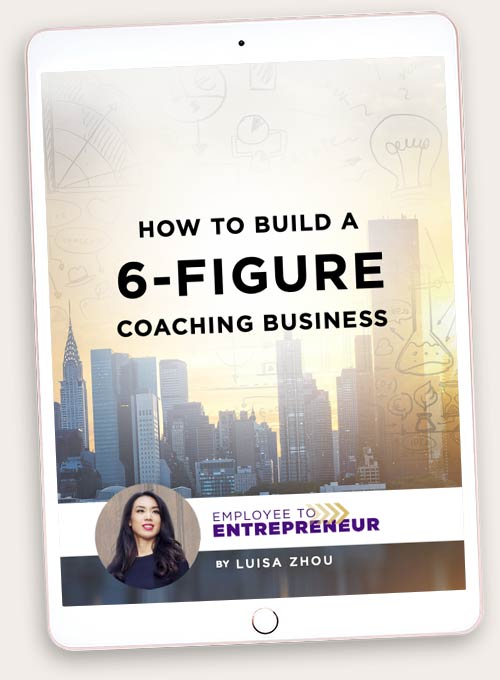
Want to Build a 6-Figure Coaching Business So You Can Achieve More Freedom?
Get Instant Access To My FREE Ultimate Guide Below!
When you sign up, you’ll also receive regular updates on building a successful online business.
Learn more:
Steps to Build a Coaching Business
How to Create a Coaching Contract
How to Sell High-End Coaching Packages
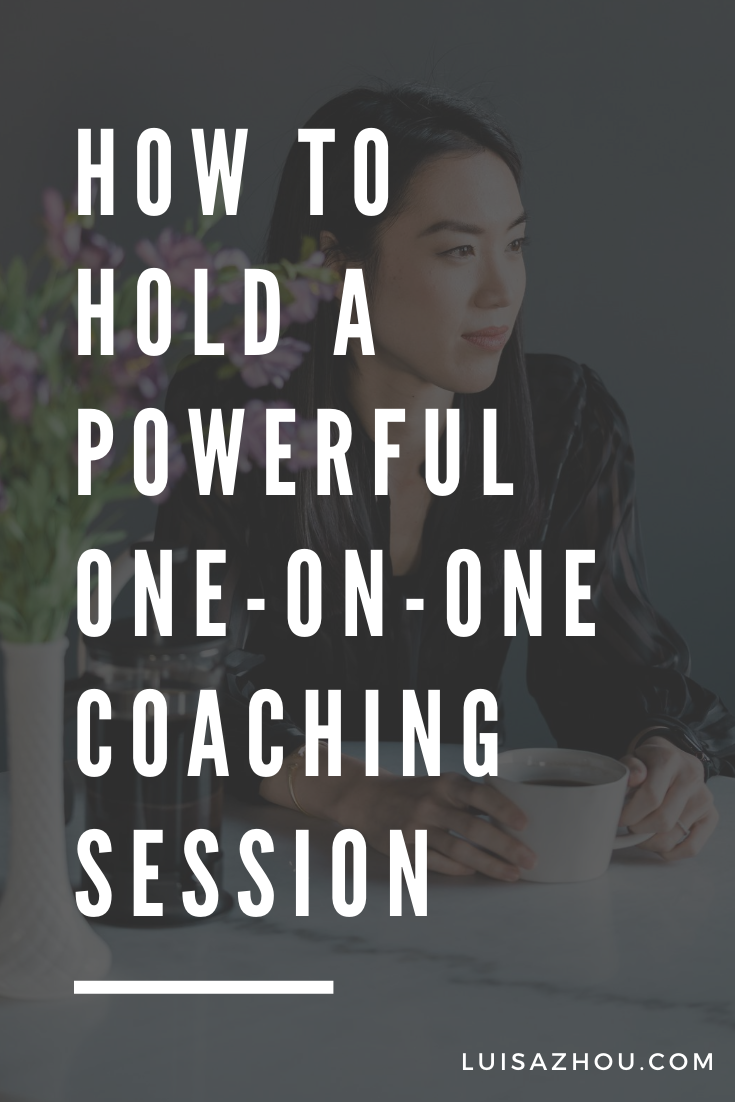




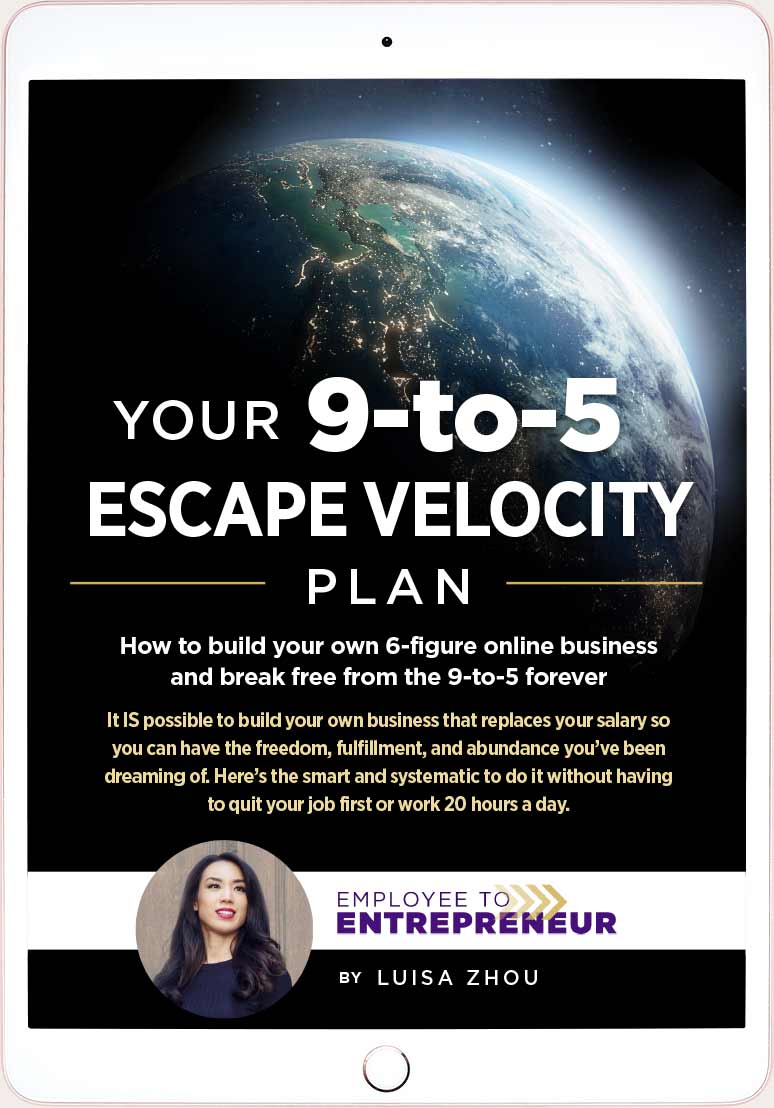



2 Responses
Really liked this content and wanted to get on the email list… unfortunately the page doesn’t load. I tried several links on this page too. Just an FYI…
Hi Renee, glad you are enjoying the content! I’m sorry to hear about your tech issues! I’m not having any issues loading any of our sign-up pop-ups or pages, so I think the easiest thing to do if you’d like to join our list is — if you email [email protected] and request to be added, we can add you manually with your permission.